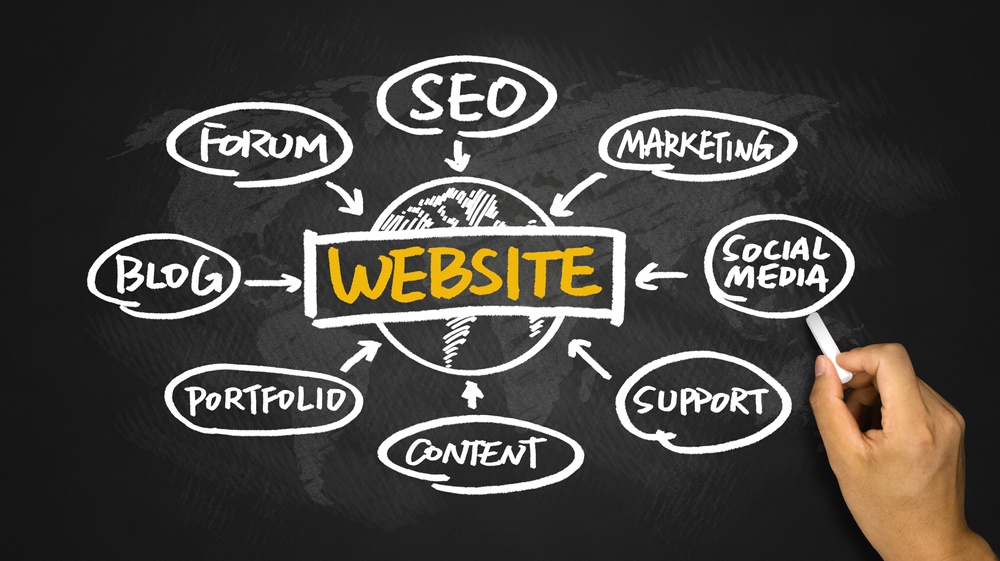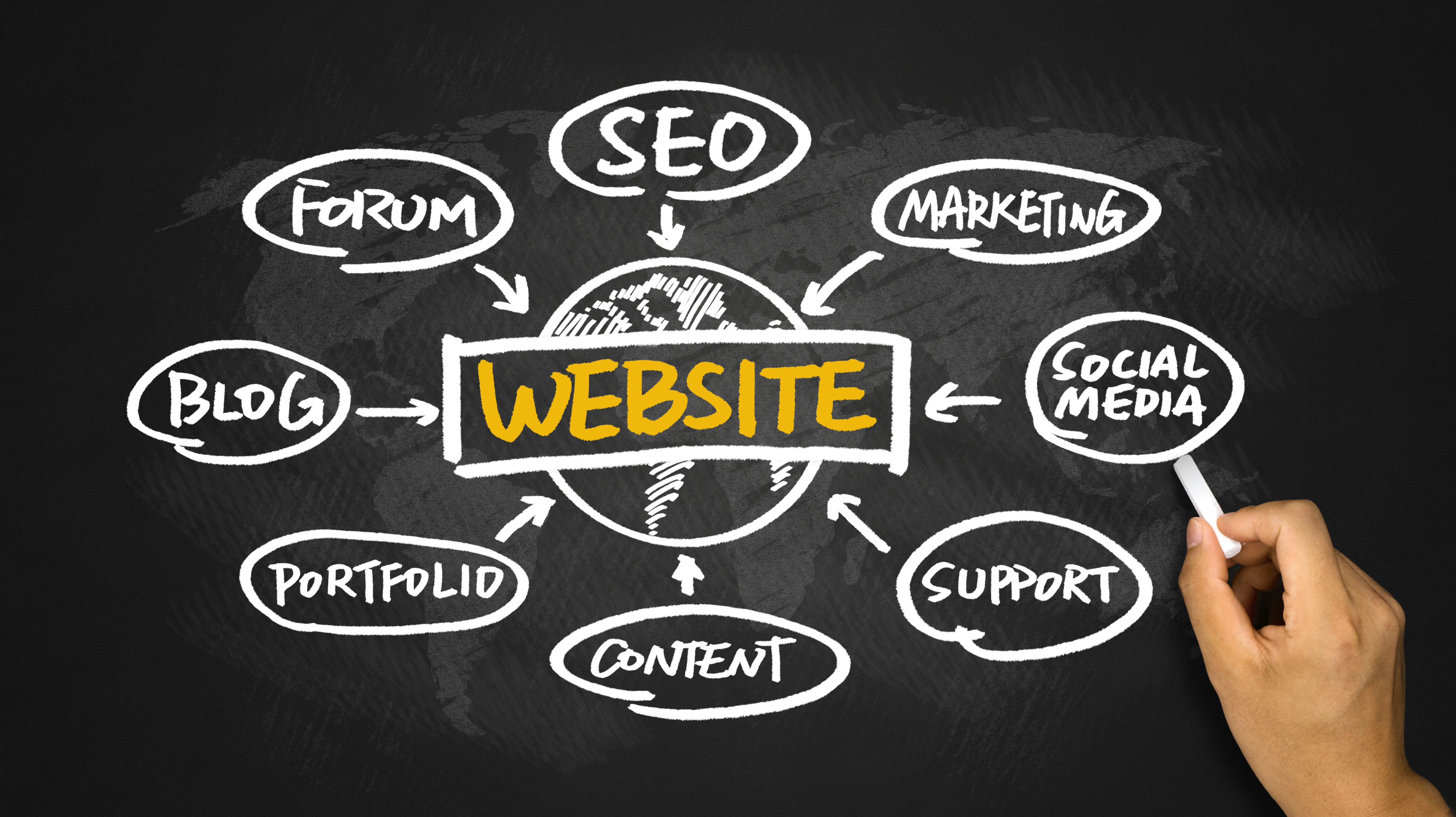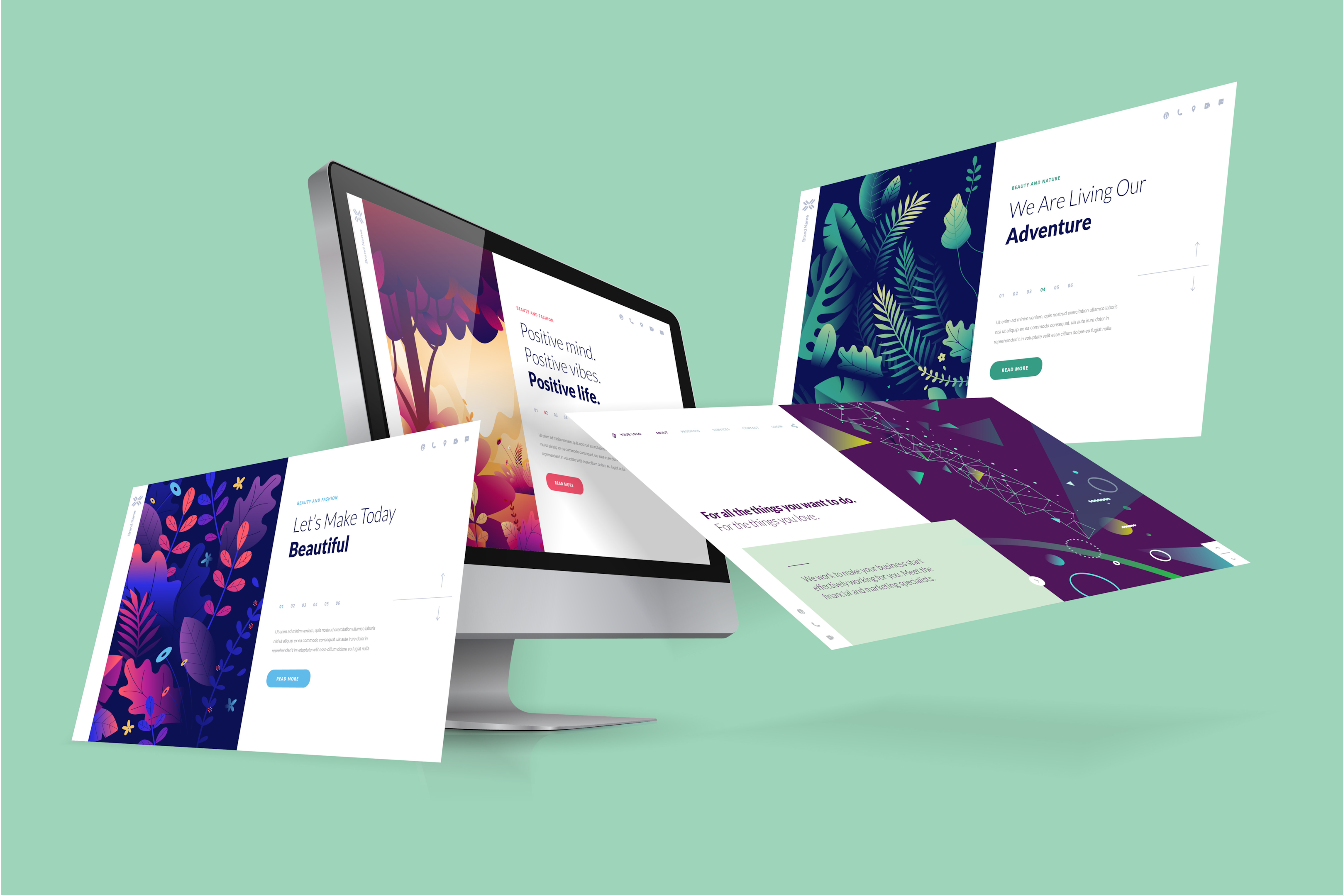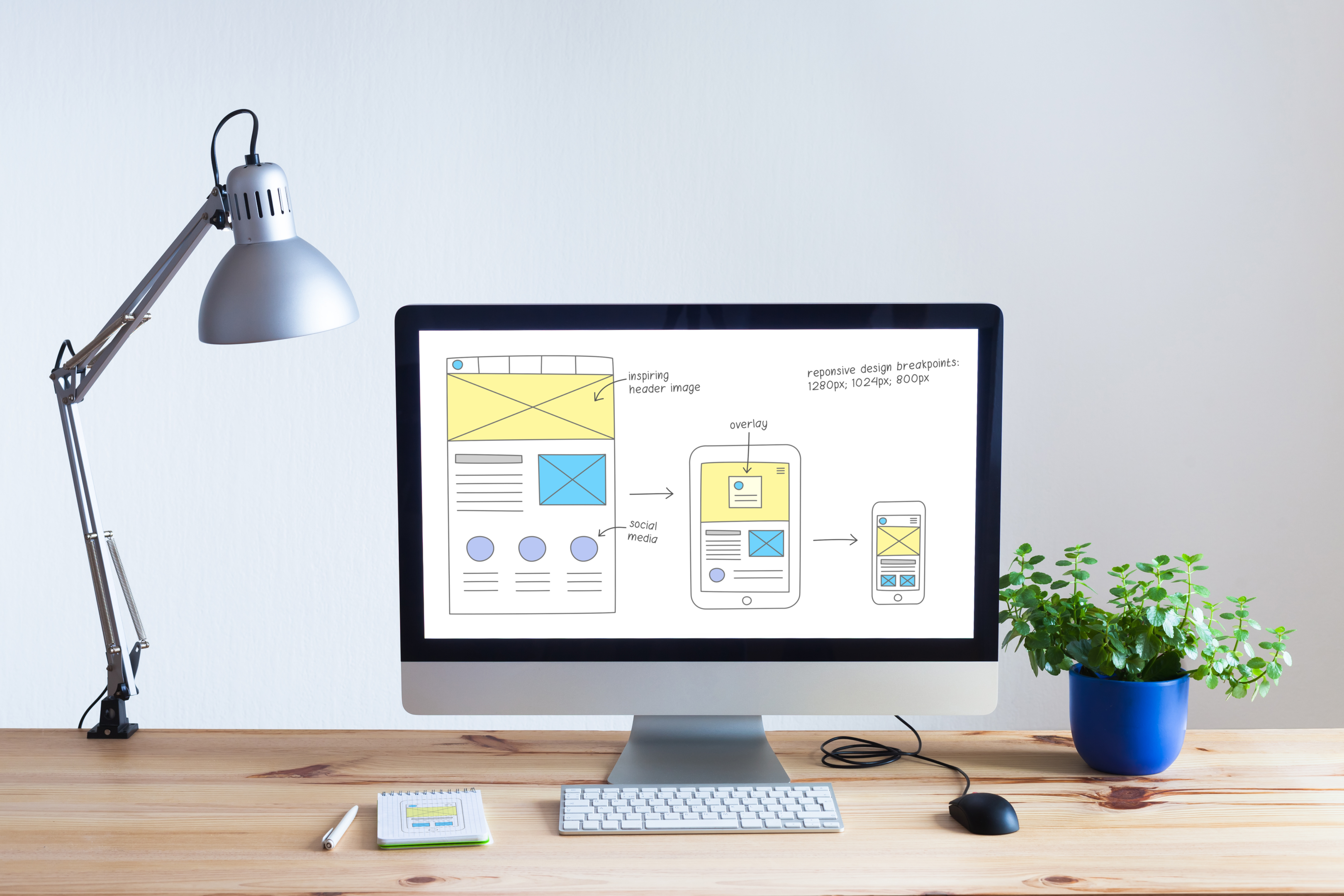Sarah Humphreys

When it comes to building a website for your business, it's important to choose the right type of website that will meet your needs and goals. There are several different types of websites to choose from, each with its own set of features and benefits. And choosing which website is best might be a litter overwhelming.
Some websites are more useful than others, depending on your business's industry. Some are easier to maintain while others are just plain confusing. That's where we come in. We've put together a quick guide that will help you figure out what type of website is best for your business.
Read on for tips on choosing the perfect website for your business model with insight from our community members to help you along the way.

Most Common Types Of Websites
Some popular website options include e-commerce websites, informational websites, and social networking websites. It's important to carefully consider your business goals and target audience when selecting the right type of website, as the type of website you choose will have a big impact on the success of your online presence. Let's break each of them down:
Blog
A blog is a web page where the owner posts articles or stories for other people to read. This is usually done with software like WordPress but you can really use any platform that allows you to create a website.
Blogs are mostly used for personal websites and business owners looking to connect with their audience sharing thoughts and knowledge with the world in an informal way. They can also be used as a marketing tool by companies who want to promote their products or services through blogging.
Publishing Website
Publishing websites are used to publish articles of interest on different subjects. They can be used by companies to publish press releases and news related to their field of activity or business area (ex: software development companies, innovation agencies, etc.). They also help journalists write articles about particular topics (ex: finance, politics, etc.). Publishing websites help journalists find new sources for their future stories as well as give them feedback from other users on their existing articles through the comments section or social media accounts such as Facebook, Twitter, etc.
Portfolio
Portfolio sites are online portfolios used by businesses or individuals who want to show off their work in order to attract potential clients or employers. Portfolios typically contain examples of past projects that showcase skills such as writing, coding, and graphic design. Most portfolio sites also include a contact form so potential clients can let you know how they'd like their project completed.
Content Management System (CMS)
CMS sites are platforms that allow you to create a website without having to learn how to code. There are many different kinds of CMS platforms available such as WordPress and Drupal. With these platforms, you can create websites that have various features such as blogs, forums, and eCommerce stores. The majority of websites today use CMS platforms as opposed to static HTML pages because they're easy to use and quick to update.

eCommerce
An eCommerce store is a website that sells products or services online. You can sell physical products like clothing or electronics or digital products like music and software on an eCommerce store. If you have an online business then it’s almost certain that you will need one at some point in time because these sites are very popular among consumers who want to purchase things without leaving their homes.
My business offers two different types of services. Should I combine them in one webpage, or create two websites?
With all this information to consider, should anyone have separate sites for the same company that offer different products or services?
Community member, Prasanna Krishnamoorthy shares their insights here:
"Two key concerns are:
1. Customer confusion with the 2 offerings: Imagine being in an art gallery that sells photography training and fine art or a book store that tries to sell you fine art. Even if it's the same group of people, they may be in very different mindsets and hence may not associate both together.
2. SEO challenges with mixed messages you're sending. Which keywords would you optimize for which part of the site?
The advantage would be if the customer base is the same group of people, hence offering to cross-sell opportunities. For instance, if your MAIN source of leads for the training site is the art site, then this would be more important.
In general, I would suggest one site for one customer group. If there is likely to be a very high overlap, then the same site, with multiple sub-sites might work.
As matter of fact, it'll probably be EASIER to do two sites for this than one site. Your designer will thank you :)
Then tastefully add cross-links in the places where someone is likely to use them. For instance, the art gallery could have a post 'How I make art' and links to your other business there. And the photog training site would have your art pics with subtle on-image links to your art biz.
While I'm not a branding expert, I do find that my engineering lead approach to challenges in Marketing/Sales usually works, and provides clarity and direction."
Another community member, Joseph Peterson, weighs in with this information:
"Consider TV commercials. Do they make a single case, or do they split their time between 2 different sales pitches? They tend to be quite focused, don't they? Now, the communication tactics in TV ads have been studied and perfected over the decades. And the rationale isn't that different for TV compared to websites, since a typical visitor will spend only the briefest period paying attention before clicking "back" or changing the channel.
Presentation influences a visitor's decision-making process. Although you could cram 2 divergent services into a single website, the BEST presentation for a photo gallery and the BEST presentation for training workshops are unlikely to be the same. In fact, they might be mutually exclusive. To optimize both sales pitches and convince the most people, you'll want to separate the landing pages.
Some of your customers for 1 service can be converted into customers for the other service. And you can still take advantage of that audience overlap through on-site ads that link your offerings to one another – not to mention cross-marketing through your transactional emails and newsletter.
The remaining question (from my perspective, anyway) is whether you ought to separate the BRANDS or use a unified brand structure for 2 websites. You might be able to house 2 distinct websites on subdomains within a single domain. Then again, you might want 2 domain names – either related to one another or else pursuing distinct identities."

What To Consider When Choosing The Perfect Website For Your Business
Every business needs a website, but not all websites are created equal. Websites can be used for everything from selling products to providing information about a company and its services.
It's important to choose the right platform for your business so that it meets your needs and doesn't cost too much money. The first step in choosing the right website is understanding what your options are, then deciding which one will work best for you.
Hosting Platforms
The first thing to look for in a website hosting platform is security. Your website needs to be secure and has regular backups in case anything goes wrong. It's also important that the host has fast servers with low latency so that people visiting your site don't experience lag or errors.
There are many options for hosting websites and it's important to find one that meets your specific needs. For example, if you're selling products online, then you'll need a host with eCommerce capabilities. If you're running an informational blog or website, then simple shared hosting may be enough. You may also want to consider cloud hosting options.
Branding
Branding is another important factor when choosing a web host. You want a host that allows you to customize every aspect of your website's design and functionality. Some hosts offer templates that are easy to customize, while others are designed specifically for eCommerce stores or blogs, which might not fit your needs as well.
You also need to consider how easy it would be for you or anyone else on your team to make changes in the future if necessary (for example, if you want to change your logo).
What do you want people to think when they see your website? Do they need to know who you are right away or can they learn more over time? How should your brand look and feel? Does it need to be consistent across all platforms (including social media)? These are all questions that must be answered before developing a brand identity for your business website.
You want to make sure that your website conveys the right message about your company and brand. This may seem obvious, but it's something that gets overlooked all too often! A good branding strategy will help you develop a clear understanding of who you are as a business, what you offer, and what separates you from your competition.
Audience
This is an essential part of any successful marketing campaign — and being aware of these details will help you build a website specifically targeted to your customer base. Who is your target audience? What do they like to read? What are their interests?
Knowing all this will help you shape the content of your site so it resonates with those people most important to your business's success. If you're targeting millennials then social media integration is probably a good idea. If retirees are more likely to come by their information via search engines then keyword optimization is important.

SEO
SEO is the process of optimizing your site so that it appears higher in search results on Google and other search engines. There are many factors that go into SEO, including content, images, links, keywords, and more. It's important for your business' website to have good SEO so that customers can find you when they search for products or services like yours.
Search engines like Google want to show the best results first. So if you have an unoptimized website, it won't rank as high as other websites that are optimized. A good web designer will make sure their sites are optimized for search engines by using keywords in titles and descriptions, as well as using meta tags and alt attributes on images. They will also make sure internal links on their pages point to other pages, so if you're hiring someone to build a website for you, make sure to ask them what they do for SEO optimization before bringing them on.
You want your website to be easy to find. That means having an optimized layout with keywords in the title tags and URLs, as well as unique content that isn't duplicated across other sites on the web. You also want it to load quickly so people don't bounce off before they even get started browsing around!
Compatibility With Multiple Browsers
Another important factor when choosing the perfect website for your business is compatibility with multiple browsers. It's important that your site looks good on all types of browsers because not everyone browses using Google Chrome or Mozilla Firefox. Some prefer Safari (for Mac users) or Internet Explorer (for Windows users).
If a website isn't compatible with multiple browsers, it could negatively impact its SEO rankings and lead visitors away from your site altogether, so it's really important that any site you choose works across multiple browsers so visitors can easily access your site no matter what.
What's The Competition Doing
If you have competitors who already have websites, see what they're doing well and emulate them as much as possible — without copying their content completely!
The first thing you need to do is research. You'll want to know what they're doing well and what they're not doing so well. This will give you an idea of what features are important, and which ones aren't really necessary in today's marketplace. Take note of what your competitors are doing with their websites and why it works for them. This can give you some ideas about how to improve yours!

Types of Business Website — Design Companies
Choosing the perfect website for your business can be a daunting task. There are so many factors to consider and it's easy to get overwhelmed by how much you don't know including SEO, design, and functionality.
And it doesn't stop there. Once you know which type of business website you need, now you need to design it — and that's another obstacle entirely for those less than tech savvy. Hiring a web designer is probably your best bet, but how do you know which one will be a good fit for your company?
Don't worry, we're here to help! We've put together a list of questions you should ask yourself when choosing a web design company, as well as some things to consider when comparing designs.
1. What is your budget?
2. How much time do you have?
3. What is your target audience?
4. Will it be mobile-friendly?
5. What colors/fonts do you want to use?
6. Do you need eCommerce functionality or other special features like booking software and booking forms?
7. Do you have any specific needs regarding SEO, social media integration, or other technical issues?

Summary
There are several factors that a new business owner should consider when deciding which type of website to use for their business. These include:
Purpose of the website: The first thing to consider is the purpose of the website. Is it an e-commerce site where you will be selling products or services online, or is it a website to provide information about your business and its offerings? This will help you determine the type of website that is best suited for your needs.
Budget: The cost of building and maintaining a website can vary greatly depending on the type of website and the features you want to include. It's important to consider your budget and how much you are willing to spend on your website.
Technical expertise: Some types of websites require more technical expertise to build and maintain than others. If you have limited technical skills, you may want to choose a website builder or content management system (CMS) that is easier to use.
Target audience: Consider who your target audience is and what type of website they are most likely to visit and engage with. This will help you choose a website design and layout that is most appealing to your audience.
Marketing and SEO: If you want to use your website for marketing and to improve your search engine optimization (SEO), you'll want to choose a website that is designed with these goals in mind.
Ultimately, the best type of website for your business will depend on your specific needs and goals. It may be helpful to do some research and compare different types of websites to see which one is the best fit for your business.
Find this article helpful?
This is just a small sample! Register to unlock our in-depth courses, hundreds of video courses, and a library of playbooks and articles to grow your startup fast. Let us Let us show you!
Submission confirms agreement to our Terms of Service and Privacy Policy.
Already a member? Login
Start a Membership to join the discussion.
Already a member? Login
useful info